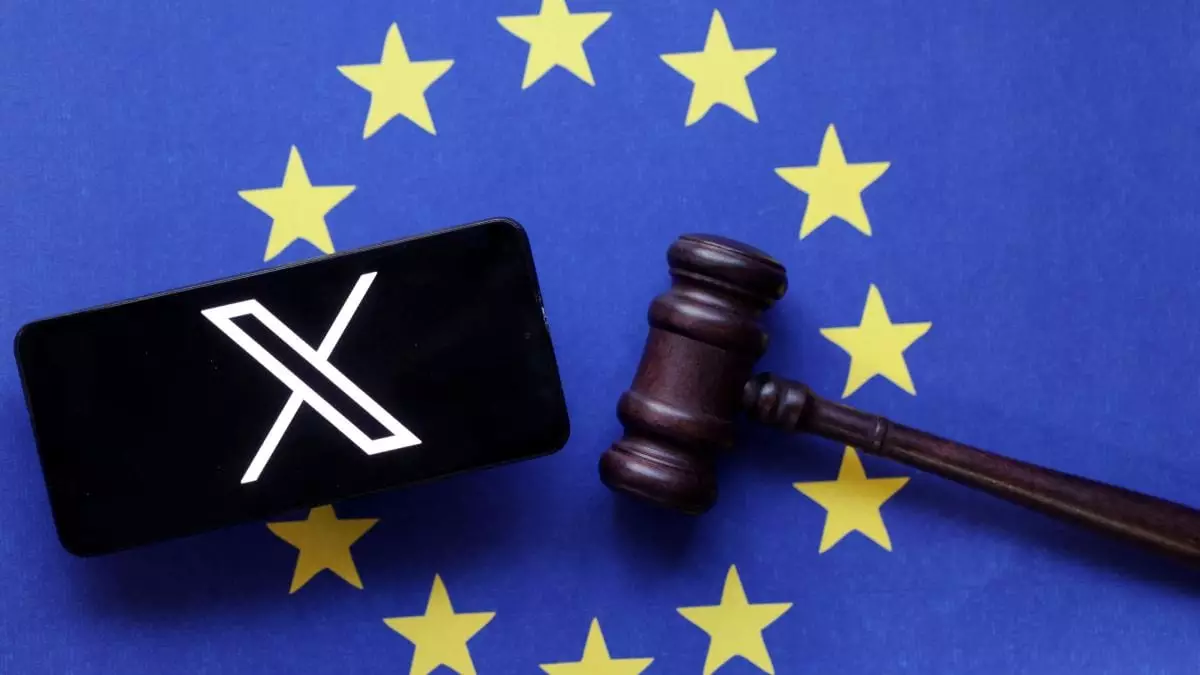Elon Musk’s social media venture, X, finds itself navigating a complex regulatory environment in the European Union (EU). As the EU seeks to rein in the influence of major technology companies through measures such as the Digital Markets Act (DMA), X has reportedly positioned itself as not qualifying as a ‘gatekeeper’ under those rules. This classification is pivotal because it dictates which obligations the platform must fulfill to align with EU objectives aimed at promoting fair competition and consumer protection.
The DMA specifically sets thresholds for classification as a gatekeeper, including conditions related to user base and market capitalization. Companies must have over 45 million monthly active users and a market value exceeding 75 billion euros ($83 billion) to fall under its purview. The significance of these metrics becomes evident when considering the potential regulatory burdens that come with this classification, as gatekeepers must adhere to strict guidelines that promote interoperability and prevent monopolistic practices.
Following initial discussions in May, the European Commission launched a formal investigation into X. This inquiry is a direct response to the platform’s assertions that it does not play an essential role in mediating interactions between consumers and businesses. While X claims exemption from certain obligations under the DMA, the scrutiny from EU regulators highlights the ongoing tensions between tech companies and policy-makers.
The DMA isn’t the only regulatory challenge facing X. The newly implemented Digital Services Act (DSA) also looms large, imposing stringent requirements on large online platforms to curtail the dissemination of illegal and harmful content. This legislation represents a shift towards increased accountability and proactive engagement in content moderation, compelling platforms to reassess their operational policies and practices.
One of the most concerning aspects of non-compliance with the DSA is the steep financial repercussions that X could face. The act stipulates fines of up to 6% of a company’s global annual revenue, a potential hit that could have drastic effects on the platform’s financial health and sustainability. Thus, while X may evade gatekeeper status under the DMA, its ongoing investigations under the DSA underline the critical need for the platform to enhance its practices regarding user safety and content governance.
The implications of these regulations extend beyond mere compliance. They represent a transformation in how social media platforms interact with users and disseminate information. As compliance pressures mount, platforms like X will be forced to reconsider their strategies, which could lead to broader changes in user experience and functionality on social media sites.
As the European Commission’s investigations unfold, X faces a crucial juncture. The platform must adapt to regulatory frameworks that prioritize consumer protection and market fairness. The ambitions of Musk’s X will be closely tied to its ability to comply with emerging regulations and creatively respond to the expectations set forth by the EU.
Ultimately, the landscape for social media platforms is shifting; proactive engagement with regulatory bodies will be key for success. The real challenge lies in balancing the drive for innovation with the need to uphold consumer rights and promote healthy online environments. For Elon Musk’s X, the stakes are high, and the path forward remains intricate and uncertain.

